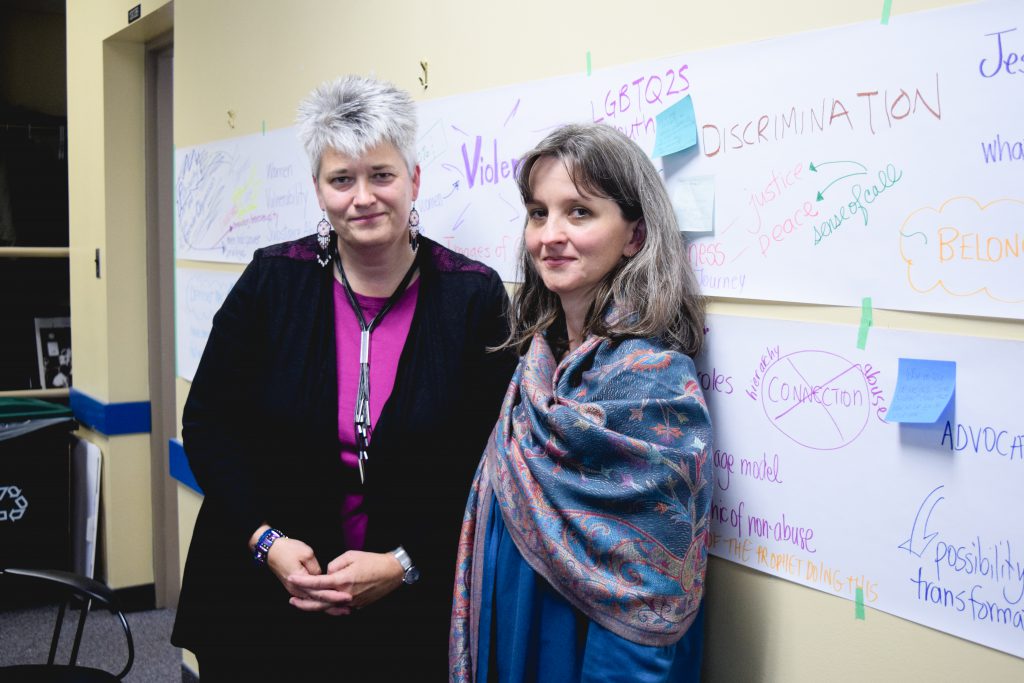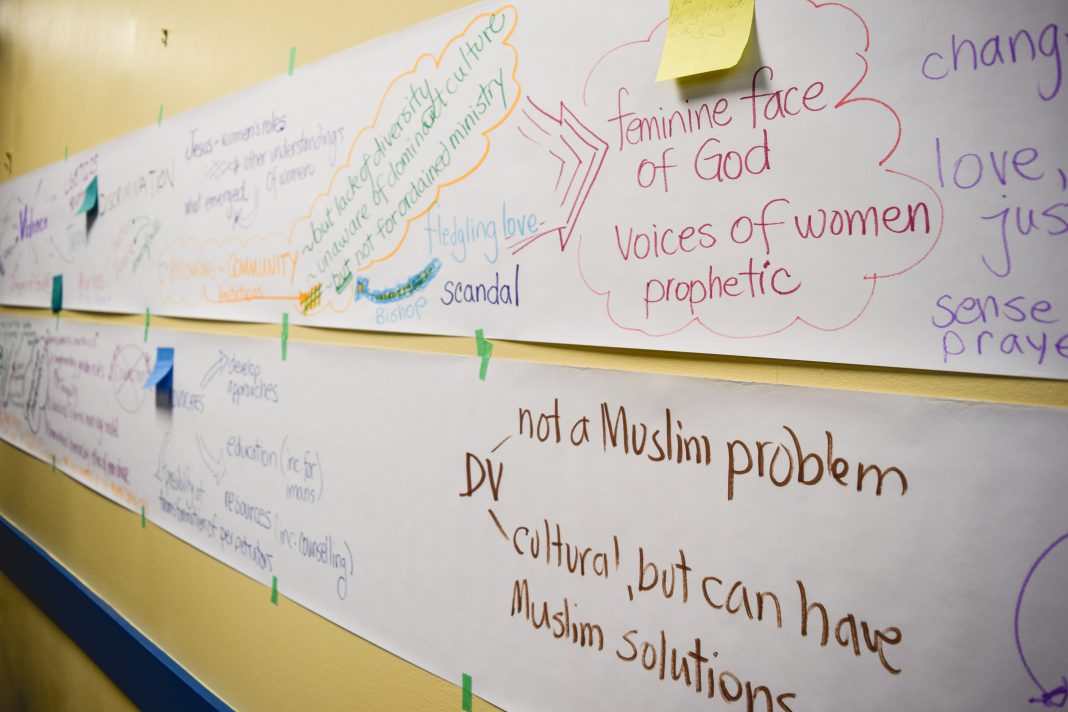What happens when an Anglican and a Muslim get together to talk about the dark sides of their religions?
The Interfaith Dialogues, held by Renison’s Anglican Institute of Ministry in co-operation with Laurier’s Studies in Islam, brings speakers from both faiths to initiate serious conversations about their religions with each other.
The current series, titled “Dealing with Our Darkness: An Anglican-Muslim Conversation about Transgression, Penitence, and Transformation,” is about processing the “darkness of evil and oppression perpetuated with religious sanction or in the name of religion” from people who have studied or experienced it from within each institution, according to Renison’s website.
Marilyn Malton, director of the Renison Institute of Ministry, wanted to use these events to “talk about the hard stuff, the difficult stuff.”
She said, “There’s a pretty broad perspective … in the presenters and the participants … that’s a really rich gift for students that we can have on campus.”

The module on Oct. 30 was about patriarchy and gender oppression. The speakers, Pam Hill and Dr. Juliane Hammer, work with and study domestic abuse and women’s rights from the lens of their religions.
Hill, the director of Clinical Programs and Service in London, Ontario, felt called to serve the Anglican Church through the ministry from a young age. She faced obstacles, not only from being a woman but from what ultimately prevented Hill from becoming ordained — falling in love with a woman.
Her bursaries and scholarships for seminary were revoked. Hill experienced what she describes as “disenfranchised love, disenfranchised grief.”
“I find myself in a passionate ambivalence with my church,” said Hill. “By definition, the Anglican and Catholic churches are patriarchal institutions … where men hold the power and women are excluded from it.”
Hammer is an associate professor at the Kenan Rifai Distinguished Professorship of Islamic Studies at the University of North Carolina. She, too, recognizes the duality and patriarchy of her religion and how it affects its members.
She talked about the idea of feminist interpretation of the Quran’s passages on marriage, and focused on the idea of the “protective hierarchy,” which, though maintaining the patriarchy, does not tolerate abuse.
“If you have a hierarchy in the family, you’re predisposed to power issues … which can spin out of control,” she said. Hammer also recognized, and Hill agreed, the difficulty of separating patriarchy from religion, and whether that separation is meant to be.
“[Is there] in fact a way to disentangle patriarchy from religion?” Hammer asked.
During the talk, volunteers recorded key points on timelines posted on the venue’s wall. Afterwards, audience members, comprised of students, academics, and community members, broke into small discussion groups.
Malton wants the Interfaith Dialogues to serve as a model for other similar conversations. “We wanted to learn how to have [these conversations and provide] resources for classrooms, churches, and mosques to have these conversations as well.”






























